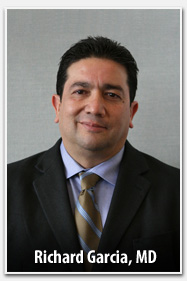
This article is the first installment in a series of discussions on ICD-10. Written by a member of our Physician Consultant team, this article series is intended for a physician audience. The opinions expressed in this article are solely the opinions of the author, and unless stated otherwise, do not represent MEDITECH’s position on these issues.
Why are physicians resisting ICD-10 adoption?
To understand why physicians are unhappy about the looming ICD-10 deadline, there is no better place to start than with the American Medical Association. The AMA has been quite vocal in its opposition to ICD-10, and along the way has cited several reasons for their lack of support including: the anticipated cost of implementation, loss of productivity, and a sense that the transition would be destabilizing to physician practices.
I think that the financial burden is a fair issue to raise. Unlike the transition to Meaningful Use, with its federal financial incentives for achieving attestation by a certain deadline, there are no defined incentives for ICD-10. So where there is a carrot in the Meaningful Use model, the transition to ICD-10 seems to only carry a big stick. From a physician’s perspective, this is an unfunded mandate that benefits hospitals more than it does individual physicians. Frankly, as far as physicians are concerned, there is little interest to play along.
This switch to ICD-10 is also coming at a time when beleaguered physicians are already grappling with so many changes from the government and healthcare industry. Over the past few years, a typical physician has seen his or her hospital affiliate with other hospitals, joined a large practice, or perhaps has sold his/her practice to a hospital or Accountable Care Organization. That same physician has also been asked to adopt new technology, see patients faster, and spend more time documenting in the medical record. This physician may have been asked to gradually transition what was once a solo or small group practice into some type of corporate entity. It’s completely understandable why physicians are concerned about yet another change coming down the pike, and what it will do to their practice.
In order to empathize with the physicians’ resistance to ICD-10, we need to examine what motivates them—autonomy. Physicians are highly autonomous by nature, and we have gradually lost a sense of control over our roles with every new mandate. Physicians are especially protective over the only thing left in our control: the doctor-patient relationship. So any solutions we propose to alleviate the ICD-10 transition must be very sensitive to this perspective.
How can we get physicians to become more positive and engaged partners in this transition? The first step is to frame the issue correctly. Instead of calling it the International Classification of Disease, the abbreviation “ICD” should be replaced with “Intelligent Clinical Documentation.” Physicians do not care about codes or about the term ICD-10. Physicians care about medicine and about relevant documentation. We also need to give physicians support at the hospital level, not from federal incentives.
In our next installment, I will focus on the one clear, positive outcome of the ICD-10 transition: clinical documentation improvement.
Richard Garcia, MD is a practicing emergency physician and medical director at Beverly Hospital in Montebello, California. Dr. Garcia is an AHIMA Approved ICD-10 CM/PCS Trainer. He received his MD degree from Harvard, his Master’s in Public Policy from Harvard’s Kennedy School of Government, and his Master’s in Health Administration from USC. Dr. Garcia is a physician consultant for MEDITECH, a physician advocate for Nuance, and a physician advisor for ImplementHIT. Dr. Garcia has developed an expertise around physician documentation and is President of ICD Documentation Solutions and Co-Developer of Power ICD.